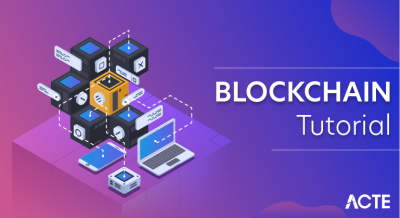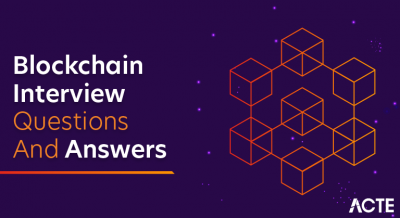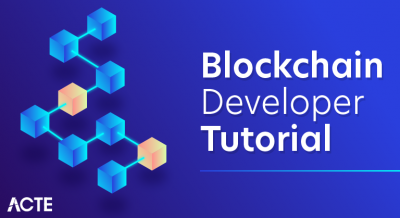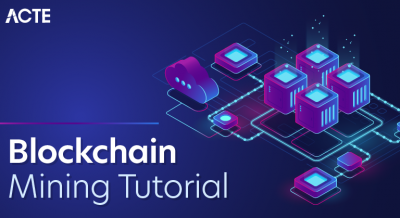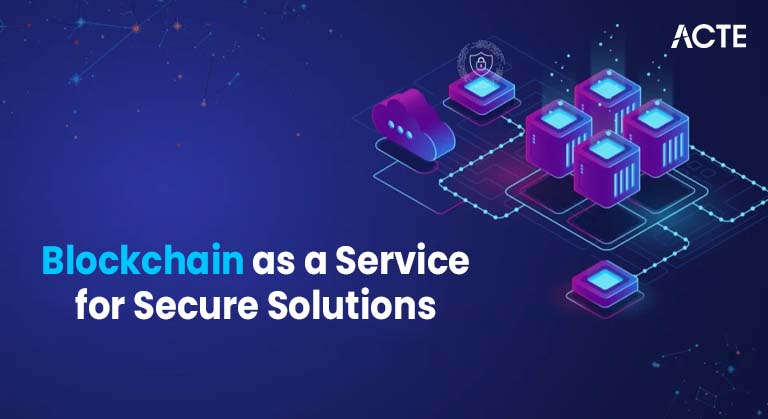
- Introduction to Blockchain as a Service (BaaS)
- How BaaS Works: A Technical and Business Overview
- Key Features and Benefits of BaaS
- Major BaaS Providers in the Market
- Real-World Use Cases of BaaS
- Challenges and Limitations of BaaS
- How to Choose the Right BaaS Platform
- Future of BaaS and Final Thoughts
Introduction to Blockchain as a Service (BaaS)
Blockchain as a Service (BaaS) is an innovative cloud-based service that allows businesses to build, host, and use their own blockchain applications without the complexities of developing and maintaining the infrastructure. By leveraging BaaS, companies can deploy blockchain networks efficiently while reducing costs and complexity. One of the core features of BaaS is the ability to track blockchain transactions in real time, ensuring transparency, security, and immutability of data. This is particularly beneficial in industries like healthcare, where the technology is gaining significant traction. Blockchain technology in healthcare enables secure patient data management, improves the efficiency of medical supply chains, and ensures the integrity of health records. With BaaS, organizations in various sectors can easily integrate blockchain solutions without the need for deep technical expertise, providing a seamless path to implementing decentralized applications especially when supported by comprehensive Blockchain Training programs. As blockchain continues to disrupt traditional business models, BaaS offers a scalable solution for enterprises to harness its benefits enhancing transparency, data security, and overall operational efficiency. Whether it’s for tracking transactions or improving healthcare systems, Blockchain as a Service is becoming an essential tool for modern businesses seeking to innovate and stay ahead in a rapidly changing technological landscape.
Are You Interested in Learning More About Blockchain Certification? Sign Up For Our Blockchain Training Course Today!
How BaaS Works: A Technical and Business Overview
- Blockchain Wallet Integration: BaaS platforms simplify the integration of Blockchain Wallets, allowing businesses to securely manage digital assets and facilitate transactions without building their own wallet systems.
- Blockchain Programming and Smart Contracts: Blockchain Programming tools within BaaS enable developers to create decentralized applications (dApps) and smart contracts easily, without managing blockchain infrastructure. These tools often support integration with Different Types of Blockchain, such as public, private, and consortium networks, providing flexibility based on project needs.
- Setting Up a Blockchain Network: BaaS provides pre-configured Blockchain Networks, allowing businesses to deploy permissioned or permissionless networks quickly, ensuring transparency and security.
Blockchain as a Service (BaaS) offers businesses a streamlined way to deploy, manage, and scale blockchain applications without the complexity of building infrastructure from scratch. By providing cloud-based solutions, BaaS platforms simplify the process of integrating blockchain technologies into various industries. Whether it’s for secure transactions, decentralized applications, or enhancing data integrity, BaaS allows organizations to leverage the power of blockchain with minimal effort. This guide covers both the technical and business aspects of how BaaS works, focusing on key features such as Blockchain Wallets, Blockchain Programming, Blockchain Networks, Blockchain Mining, and the overall Blockchain System.
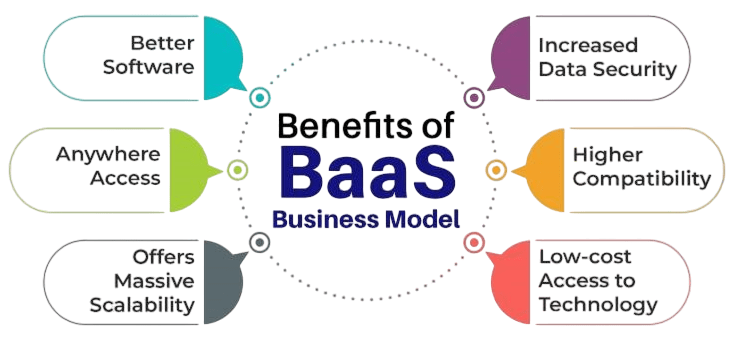
- Blockchain Mining and Consensus Mechanisms: BaaS simplifies Blockchain Mining by incorporating consensus mechanisms like Proof of Work or Proof of Stake, enabling businesses to participate in mining without extensive infrastructure.
- Blockchain System Management and Security: BaaS offers easy management of the entire Blockchain System with built-in security features like encryption, access control, and real-time monitoring to ensure system integrity.
- Business Benefits of BaaS: BaaS reduces complexity and costs for businesses, offering enhanced Blockchain Networks, secure Blockchain Wallets, and efficient Blockchain Mining, driving innovation and operational efficiency.
Key Features and Benefits of BaaS
Blockchain as a Service (BaaS) offers a range of powerful features and benefits that streamline the integration of blockchain technology for businesses. One of the standout features is Blockchain Wallet integration, which allows businesses to offer secure storage and management of digital assets without having to develop their own wallet infrastructure. BaaS also supports Blockchain Programming, providing developers with the necessary tools and frameworks to easily build decentralized applications (dApps) and deploy smart contracts. The ability to create a Blockchain Network with minimal effort is another key benefit, offering businesses secure and transparent platforms for transactions and data management. For those interested in participating in Blockchain Mining, BaaS simplifies this process by managing mining operations and implementing consensus mechanisms like Proof of Work or Proof of Stake. This also opens the door for developers and entrepreneurs to explore Top Blockchain Project Ideas that incorporate mining features and innovative consensus models. Additionally, BaaS platforms provide a comprehensive Blockchain System that ensures efficient management, data security, and scalability. With automatic updates, real-time monitoring, and built-in encryption, businesses can rely on BaaS to maintain the integrity and performance of their blockchain infrastructure while reducing the complexity and costs associated with managing it in-house. This makes BaaS an ideal solution for organizations looking to leverage blockchain technology with minimal technical overhead.
Are You Interested in Learning More About Blockchain Certification? Sign Up For Our Blockchain Training Course Today!
Major BaaS Providers in the Market
- Microsoft Azure Blockchain Service: Microsoft’s Azure offers one of the most comprehensive BaaS platforms, providing businesses with tools to easily build, deploy, and manage Blockchain Networks. It also allows users to track blockchain transactions and ensures compliance with industry regulations.
- IBM Blockchain: IBM’s BaaS offering focuses on enterprise-grade solutions, including Blockchain Technology in Healthcare. With IBM, companies can create permissioned blockchain networks to track medical records and supply chains, ensuring secure, transparent data management. Additionally, organizations are Exploring Blockchain in Banking through IBM’s platform to enhance transaction security, streamline compliance, and improve financial data transparency.
- Amazon Web Services (AWS) Blockchain: AWS provides a scalable BaaS solution that supports various blockchain frameworks. It allows businesses to quickly launch their own Blockchain Networks and track blockchain transactions seamlessly.
- Oracle Blockchain Cloud Service: Oracle’s BaaS platform provides secure blockchain networks for businesses in various industries, including healthcare. It supports Blockchain Programming and ensures the integrity of transactions across different sectors.
- Huawei Cloud Blockchain Service: Huawei’s BaaS focuses on providing blockchain solutions for industries like finance and healthcare. Their platform allows businesses to implement smart contracts and track blockchain transactions efficiently.
- Limited Customization: Many BaaS platforms offer pre-configured blockchain solutions, but this can limit the ability to fully customize the network. Businesses with unique requirements may find it difficult to tailor the platform to their specific needs, such as creating highly specialized Blockchain Networks or modifying certain aspects of Blockchain Programming.
- Data Privacy and Security Concerns: While Blockchain Technology in Healthcare offers secure patient data management, businesses may worry about control over sensitive information on the cloud. Data breaches or vulnerabilities in third-party providers could compromise blockchain integrity. Understanding the Blockchain Trilemma in depth, balancing decentralization, security, and scalability, helps mitigate these risks.
- Integration Challenges: Integrating existing legacy systems with Blockchain Networks can be complex. Businesses may struggle to connect their traditional software systems with a blockchain-based platform, making adoption more difficult and time-consuming.
- Scalability Issues: While BaaS platforms are designed for scalability, some organizations may face challenges when scaling up blockchain applications for large, high-volume environments. Tracking blockchain transactions in real time across vast networks may lead to performance bottlenecks.
- Cost of Service: Although BaaS reduces the need for building blockchain infrastructure, the ongoing subscription and service fees for cloud-based blockchain solutions can add up. For small businesses, these costs can become a barrier to entry.
- Regulatory Uncertainty: Regulatory compliance is still an evolving area in many industries, particularly in healthcare. The implementation of Blockchain Technology in Healthcare may face hurdles due to uncertain regulations around data privacy, patient consent, and blockchain’s role in compliance.
Several major Blockchain as a Service (BaaS) providers dominate the market, offering robust solutions for businesses looking to integrate blockchain technology into their operations. These providers offer tools to track blockchain transactions, develop decentralized applications, and implement blockchain-based solutions for industries like healthcare. Here are some of the top players:
Real-World Use Cases of BaaS
Blockchain as a Service (BaaS) is transforming various industries with its real-world applications, enabling businesses to leverage blockchain technology without the complexities of building infrastructure. One prominent use case is in Blockchain Wallets, where financial institutions and fintech companies utilize BaaS to offer secure, user-friendly wallets for managing digital assets and conducting transactions. In addition, Blockchain Programming is enabling the development of decentralized applications (dApps) and smart contracts, reducing costs and improving efficiency in sectors like supply chain management and finance. As a result, Blockchain Training is becoming essential for professionals looking to build and deploy these innovative solutions effectively. BaaS also allows companies to establish their own Blockchain Networks, ensuring secure, transparent transactions while eliminating intermediaries. A notable example is in healthcare, where BaaS solutions manage patient data and streamline supply chains through secure, transparent networks. Furthermore, Blockchain Mining has become accessible to businesses through BaaS, which simplifies the process of mining cryptocurrencies and managing consensus mechanisms. Companies are leveraging Blockchain Systems to optimize business processes like tracking assets, verifying identities, and securing sensitive information. With real-time transaction tracking and data immutability, BaaS is driving innovation and operational improvements across a wide range of industries, from finance to healthcare, providing secure, scalable, and cost-effective blockchain solutions.
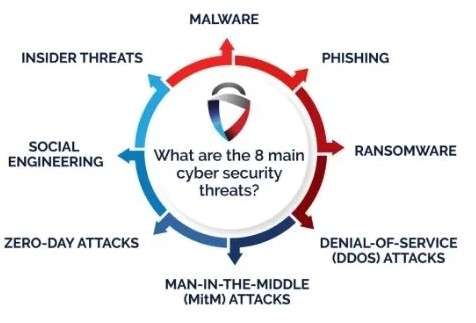
Challenges and Limitations of BaaS
While Blockchain as a Service (BaaS) offers significant benefits, it also presents certain challenges and limitations for businesses looking to integrate blockchain technology into their operations. Understanding these potential obstacles is crucial before adopting BaaS for mission-critical applications. Here are some of the main challenges:
How to Choose the Right BaaS Platform
Choosing the right Blockchain as a Service (BaaS) platform is crucial for businesses looking to integrate blockchain technology into their operations. Start by evaluating the platform’s ability to support Blockchain Wallet integration, as secure digital wallets are essential for managing transactions and assets. Ensure the platform provides tools for Blockchain Programming, allowing developers to create decentralized applications (dApps) and smart contracts tailored to your business needs. The Blockchain Network should be scalable and flexible, with the ability to customize for different use cases, such as supply chain management or financial services. Additionally, What is Consortium Blockchain plays a key role in such networks by allowing a group of trusted entities to jointly manage the blockchain, ensuring both security and efficiency. Consider whether the BaaS platform offers easy participation in Blockchain Mining, enabling businesses to take advantage of mining operations and earn rewards without heavy infrastructure investments. Additionally, a robust Blockchain System with real-time transaction tracking, security features, and seamless network management is vital for maintaining performance and data integrity. The platform should also offer reliable customer support, clear pricing models, and compliance with industry regulations, especially for sectors like healthcare where Blockchain Technology in Healthcare is becoming increasingly relevant. By assessing these factors, businesses can select the right BaaS provider to enhance operational efficiency, reduce costs, and leverage blockchain technology for innovation.
Are You Preparing for Blockchain Developer Jobs? Check Out ACTE’s Blockchain Interview Questions and Answers to Boost Your Preparation!
Future of BaaS and Final Thoughts
The future of Blockchain as a Service (BaaS) looks promising as businesses continue to embrace blockchain technology for its security, transparency, and efficiency. As BaaS platforms evolve, we can expect more advanced features that allow companies to track blockchain transactions in real-time with even greater precision, improving operational efficiency across industries. Blockchain Technology in Healthcare is set to become a major use case, offering secure, decentralized solutions for managing patient data, streamlining medical supply chains, and ensuring data privacy. With BaaS, healthcare providers can seamlessly integrate blockchain to enhance data security and improve patient outcomes. The growth of decentralized finance (DeFi) and other blockchain applications will drive demand for scalable and flexible Blockchain Networks, while the ability to leverage Blockchain Mining will provide businesses with new revenue streams and participation in blockchain ecosystems further emphasizing the importance of Blockchain Training to build the skills needed to navigate and capitalize on these opportunities. As BaaS platforms mature, they will simplify the deployment of blockchain systems, making it easier for businesses of all sizes to adopt these innovative solutions. The future will likely bring more specialized services, improved user interfaces, and better interoperability between blockchain systems and existing infrastructure, positioning BaaS as a key enabler of digital transformation across various sectors. The rapid advancements in BaaS will continue to unlock new opportunities for businesses to innovate and thrive in the blockchain era.


